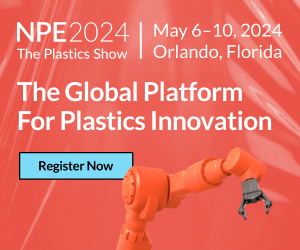Braskem to Research Chemical Recycling
Actions will promote the reuse of post-consumer plastics by manufacturers.
Braskem has formed new partnerships for the development of chemical recycling, with a focus on transforming post-consumer plastics, such as grocery bags and packaging films for snacks and cookies, once again into chemical products.
The partnerships seek to further research into technologies that can transform plastics that are more difficult to be recycled mechanically into new chemical products. The research is being conducted in partnership with the Polymer Engineering Laboratory (EngePol) at the Alberto Luiz Coimbra Institute of Graduate Studies and Research in Engineering of the Federal University of Rio de Janeiro; the SENAI Institute for Innovation in Biosynthetics; and Cetrel. The latter is an environmental service company that started its activities in 1978 jointly with manufacturers located in the Camaçari Petrochemical Complex in Brazil—the largest integrated petrochemicals complex in Latin America..
Said Gus Hutras, head of process technology at Braskem, “As we strive to reach a true circular economy, we recognize the challenges and limitations posed by traditional recycling technologies. Braskem is committed to developing, implementing and offering sustainable solutions. Chemical recycling and its potential to overcome all these challenges and limitations will enable us to achieve this goal. We are accelerating these efforts through partnerships and collaboration with other companies that think like we do in order to reach these targets as soon as possible.”
This new technological route complements the initiatives that Braskem has recently undertaken to contribute to the production concept of a Circular Economy, that involve reducing, reusing, recuperating and recycling materials to create a sustainable cycle from the production phase to the reintegration of materials in a new production process.
To add value to materials made from recycled resins, Braskem has maintained the Wecycle platform since 2015, which combines the need for proper disposal with the market’s demand for sustainable raw materials. The platform works to develop businesses and initiatives that add value to plastic waste through partnerships, which enhances the development of products, solutions and processes that involve all links of the plastics recycling chain by supporting businesses and actions involving recycling.
Braskem has defined a series of global initiatives to boost the Circular Economy in the production chain of manufactured plastic goods in a document titled, “Braskem’s Positioning for the Circular Economy.” It establishes initiatives for forging partnerships with clients to conceive new products that will extend and facilitate the recycling and reuse of plastic packaging, especially single-use packaging. It also establishes higher investments in new resins derived from renewable resources, such as Green Plastic (PE) made from sugar cane, and support for new technologies, business models and systems for collecting, picking, recycling and recovering materials.
Braskem invites its clients and other stakeholders to join forces. The initiatives also include encouraging consumers to get involved in recycling programs through educational actions focusing on conscientious consumerism, the use of life cycle assessment tools and support for actions that improve solid waste management to prevent the disposal of debris in marine environments.
Related Content
-
US Merchants Makes its Mark in Injection Molding
In less than a decade in injection molding, US Merchants has acquired hundreds of machines spread across facilities in California, Texas, Virginia and Arizona, with even more growth coming.
-
ABC Technologies to Acquire Windsor Mold Group Technologies
The Tier One automotive supplier with compounding and blowmolding machine capabilities adds the 50-yr-old molder and moldmaker.
-
‘Monomaterial’ Trend in Packaging and Beyond Will Only Thrive
In terms of sustainability measures, monomaterial structures are already making good headway and will evolve even further.











 (2).jpg;maxWidth=300;quality=90)



